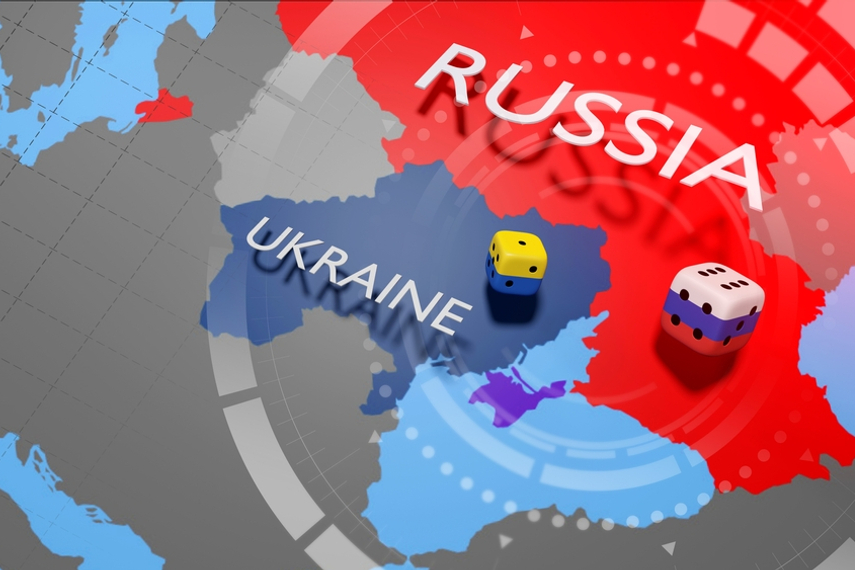Russia-Ukraine Conflict Impact


Post the Omicron variant; investors finally started to breathe a sigh of relief after the dynamics of the financial markets changed. However, the relief did not last long as soon after the Russia-Ukraine conflict began, which only increased market volatility. The inflation and interest rates have increased over the past few months and are expected to stay on a higher note for quite some time now.
The Western countries have condemned the act of Russia launching air missiles and attacking several parts of Ukraine by imposing hefty sanctions on the country. Over 100 countries have stopped their businesses in Russia, including KPMG, PWC, Adidas to name a few. Germany, too, has paused the Nord Stream 2 certification process, which would enable Russia to carry its gas to European customers. Many more sanctions are yet to be announced, and it is expected that NATO will reinforce its eastern flank. They will be raising the military presence in Poland, Romania and Baltic States to help them stay protected during times of crisis.
So, what is the Russia-Ukraine conflict impact on investors? The global stock markets have fallen sharply with an increase in commodity prices due to direct inflation. Oil and gas have been witnessing skyrocketing prices ever since. The price of gold and government bond prices are also increasing due to the securities being directly linked to inflation, but their demands still have not started shooting up.
The crisis has led to the markets being severely volatile, with the stock prices tumbling down and hitting new lows every day, whereas some stocks have seen a boosted performance overall. The geopolitical tensions between the countries have increased the investor’s concerns about how much the interest rates could increase in the future. The central banks of different countries seem to get rid of the years of quantitative ease in process and low-interest rates as they wish to now curb the increasing inflation.
The Impact Of Inflation
Global economists forecasted a peak in inflation as the pandemic persisted. However, the peak did not reach the anticipated level due to the increasing prices of commodities, oil and gas due to the Russia-Ukraine crisis. The only most significant risk hampering the world trade would be the interruption in Russian gas supply to Europe, which accounts for most of the gas supply.
Even though the market volatility is said to persist in the coming weeks, history suggests that the markets will eventually return to normal. The geopolitical concerns will start recovering with an increase in the prices all over again. Just like the housing crisis of 2008 or the Crimean Annexation OF 2014, investors did experience volatility but the global markets rose soon after as the crisis subsided. When the US invaded Iraq, the global markets did have a hard time recovering but finally boosted as the year passed. No geopolitical event is the same, and all of them have different impacts on the market. However, the only common thing about each one of them is that a market uplift follows each event in the later stages.
The Russia-Ukraine conflict impact on investors portfolios should follow a long-term approach from an investment point of view as the markets will rise back up in the coming months. The short-term period is volatile, with prices dropping and investors incurring losses. However, the long-term perspective suggests that the prices will come back to normal and enable investors to recover the losses made. Investors should be following a diversified mix of different equities with lower risk security on board that will help them minimise losses and enable fixed income appreciation banks and energy companies are most likely to benefit most from the increasing interest rates, and hence those should be included in the portfolio too. Long term growth companies that have strong franchises over the world are on a greater scale advantaged even after prolonged volatility that will ensure that investors make money despite the ongoing crisis.
Bonds and fixed income holdings are still on the liquid side. The security and diversification provided are considered to be less than that of equities at this point in time. All in all, developments are being monitored closely, and the markets will be lifted in some time, so investors need not worry in the long term. If there are short term investors who are not able to sustain the losses, this is the time to get out of the market before the volatility increases and losses are maximised. Otherwise, the best suggestion is to take time and wait for the situation to get better as every falling market is followed by a rising one.
Want to learn more about how during times of global volatility your money can still work hard for you? Request an introduction from us today.





